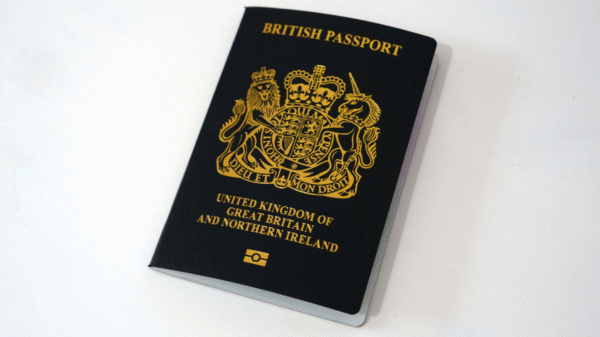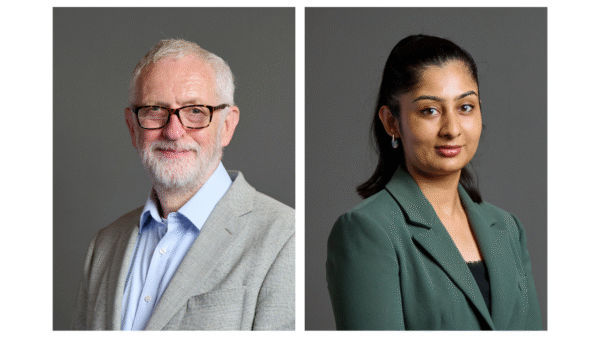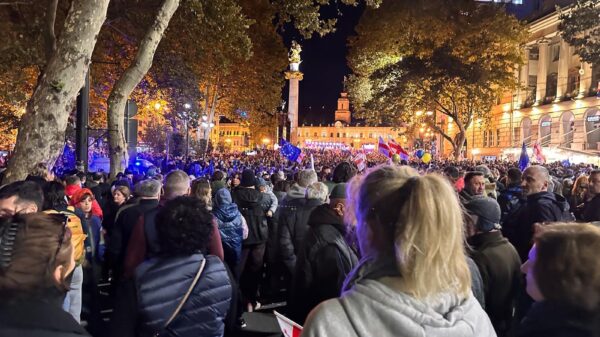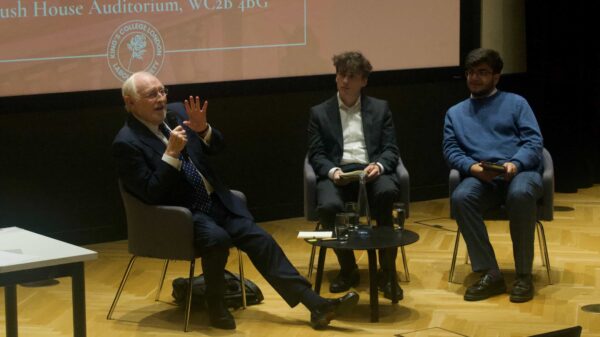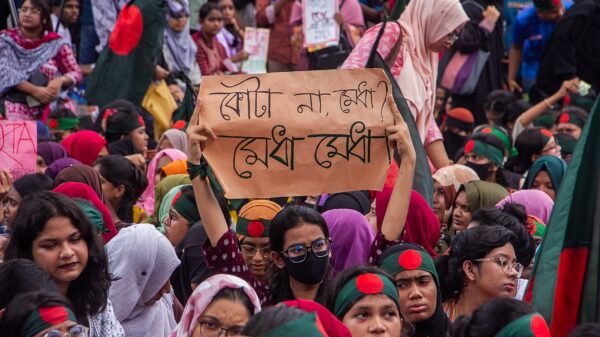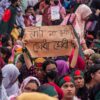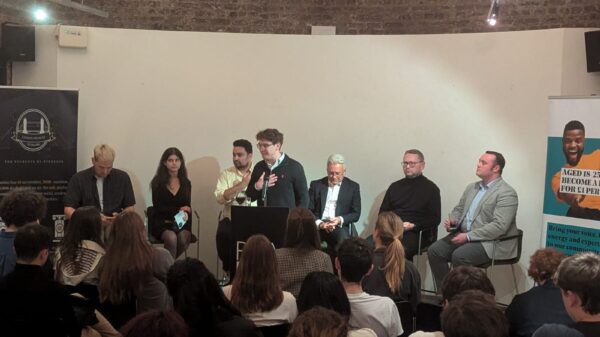Staff Writer Mia Kazbegi examines how social media is accelerating a decline of democracy across the globe, through country case studies in Germany, the U.S. and Georgia.
In an era characterised by rapid political change, preserving the principles that define democracy is more crucial than ever. With authoritarian regimes further tightening their grip on power, established democracies face unprecedented challenges, and populism is normalising democratic backsliding. Simultaneously, politically fragmented Western populations have witnessed an alarming rise in political extremism. A key driver of this instability is social media’s immense and still growing power over public perception – shaping narratives, reinforcing biases, and therefore accelerating democracy’s decline.
Given free access to the internet and an existing extensive media landscape, democratic principles should, in theory, be more secure than ever. The widespread availability of information allows individuals to research topics instantly, access a wide range of perspectives and engage in informed debate.
Why Does Democracy Continue to Weaken, Paradoxically?
It is well known that social media algorithms cater to users’ preferences, feeding them content that reinforces their existing beliefs while filtering out dissenting perspectives. This creates echo chambers, causing stark ideological divisions. Propaganda and disinformation campaigns of well-organised, powerful, small groups are deepening polarisation. The overwhelming flow of information and a general lack of critical analysis on an individual level have progressed the rapid spread of misinformation, deepening distrust in democratic institutions. Prodigious social media platforms, ruled by very few powerful individuals, more often discourage engagement with differing views and, therefore, foster division among citizens, weakening democratic stability. To highlight the power and, therefore, the danger of social media, this article will explore three country studies.
Germany’s February 2025 Elections
Germany’s election results highlight the increased influence of social media in shaping political preferences, particularly among younger voters. Dr. Jasmin Reidl, Professor of Political Science at the Universität der Bundeswehr Munich, noted that this election demonstrated the immense role social media plays in political engagement. She pointed out that the Left Party, Die Linke, led by Heidi Reichenick, had made surprisingly quick and significant strides at the ballot. She attributed their success to their growing presence on TikTok, where Reichenick’s January 2025 speech had gone viral, with over 2.2 million views. Die Linke now has the most likes of any German party on TikTok with 12.9 million likes in total, followed by the far-right party, Alternative für Deutschland (AfD), with 9.8 million likes.
A report from The Times showed the election outcome for German citizens under 25. Die Linke secured the highest vote share with 25%, while the far-right Alternative für Deutschland (AfD) followed with 21%, demonstrating a distinct political divide among young voters. This youngest cluster of new voters grew up immersed in social media and remains its most active and malleable user base, demonstrating social media’s influence on political attitudes, elections and intensifying ideological polarisation.
U.S. – Are You Being Influenced by Social Media? Or Are You Already Controlled?
U.S. social media companies exert significant influence over citizens’ political decisions. Disinformation campaigns have swayed public opinion, shaping political actions on a large scale. Donald Trump’s false election fraud claims in 2020 illustrated his immense influence over citizens, which remains largely unchecked. Two aspects of this incident stood out.
Firstly, Trump’s questioning of his 2020 election defeat suggested a U.S. president’s fundamental distrust of the democratic institutions of his own country, and more alarmingly, his tweets set a mob of 2,000 to 2,500 followers in motion to storm the Capitol on 6 January 2021. Countless tweets made by Donald Trump during his presidency have also fueled the cult of personality he has created, dramatically impacting the existing democratic structure in the U.S. In addition to frequent self-praising, Trump’s tweets adopt an informal tone; users are manipulated into feeling as if they were talking to their friend. His often controversial and brazen tweets, combined with the dangers that social media poses, suggest a clear threat to democratic stability through the division of society.
In his final speech as president, Joe Biden addressed the decline of U.S. democracy, warning of an oligarchy of the ultra-wealthy, threatening the freedom of citizens and the democracy of the U.S.. Indeed, Facebook has 3 billion users, while Whatsapp and Instagram each have 2 billion, all belonging to Meta, with Mark Zuckerberg as the main shareholder. X (formerly Twitter) has 700 million users and is majorly owned by Elon Musk. However, the most meaningful strings between social media and the U.S. government seem to be pulled by Peter Thiel, the ultra-right tech billionaire, deemed the “kingmaker”.
Georgian Dream’s Systematic Dismantling of Democracy
The Republic of Georgia, a small country in the South Caucasus, has long struggled for independence from powerful, covetous neighbours. Now, more than ever, its citizens are strongly resisting Russia’s grip, fighting for democracy. Two forces are tugging at Georgia’s fragile democracy: the pro-Russian Georgian Dream party and Russia, which is extending its influence into the Caucasus region. The ruling party, Georgian Dream, has used media propaganda techniques for over a decade to sway public opinion in favour of the local oligarch Bidzina Ivanishvili’s political agenda. Over the last two years, the government has taken a more direct and observable approach to suppressing democracy through media control.
Russia’s increasing influence in the South Caucasus and Georgia’s strategic position on the Black Sea underscore its importance for regional security and keeping Putin’s growing, imperialist sphere of influence out of Europe. Natia Seskuria, Associate Fellow at the Royal United Services Institute and Visiting Fellow at Harvard University, explained that Russia’s highly efficient approach to its disinformation and propaganda campaigns heavily relies on their intricate knowledge of the audience, making their strategy individually targeted and tailored towards the vulnerabilities of certain countries and groups.
Through the use of social media and algorithms, Russian propaganda and disinformation ensure time and cost efficiency to achieve their goals in Georgia. Pro-Russian media outlets typically portray Russia as Georgia’s natural economic and security partner. EU and NATO integration are portrayed as threats to Georgia’s sovereignty and traditional values, while bewilderingly labelling the EU, U.S. and the West as the “global war party”. During an exclusive interview, Natia Seskuria suggested that the technique in Georgia is “very useful to manipulate societal perspectives and change perceptions to serve Russia’s agenda”.
Since the War between Russia and Ukraine started in 2022, Natia Seskuria asserts that Georgia’s democratic backsliding from internal factors has significantly accelerated, as the Georgian Dream Party pursues its anti-democratic and anti-Western agenda while also strongly aligning with Russia. In April 2024, Georgian Dream passed a controversial “foreign agent law,” Activists have condemned this legislation as a “Russian Law,” drawing parallels between the early days of Putin’s way to dictatorship in Russia and Ivanishvili’s actions in Georgia. The disputed November 2024 elections triggered daily mass protests. Following the election, the government suspended Georgia’s EU membership process, despite surveys showing that over 80% of Georgians are supportive of EU integration, certainly not a democratic move.
The government has cracked down on independent journalism, a classic move against democracy and towards authoritarianism. Opposition reporters have been jailed, including Mzia Amaglobeli, director of Netgazeti and Batumelebi, who was detained in January and remains a political prisoner. By silencing opposition voices and strengthening propaganda campaigns, Georgian Dream seeks to consolidate power and secure long-term control. Given the “stolen elections”, a biased judicial system and a violent crackdown on protests and freedom of the press, Natia Seskuria argued that the Georgian government’s policies are demonstrating a swift diversion from democratic values and Georgia’s declared aspirations for European integration.
Nineteen Eighty-Four? The Dangers of Social Media
Social media renders users more vulnerable than ever. Users are bombarded by digital dis- and mis-information, flooding their screens and brains so that very small, well-organised groups can shape and manipulate the political beliefs of the masses. While digital platforms offer opportunities for engagement, their algorithmic structures frequently amplify political fragmentation and polarisation, meaningfully impacting elections. Ultimately, both media fragmentation and concentrated ownership of omnipresent social media cause significant political change and present the most imminent and serious threats to democracy.
This exclusive piece appears in the upcoming summer edition of The Dialogue, the in-house magazine of the Politics Society at King’s College London.



